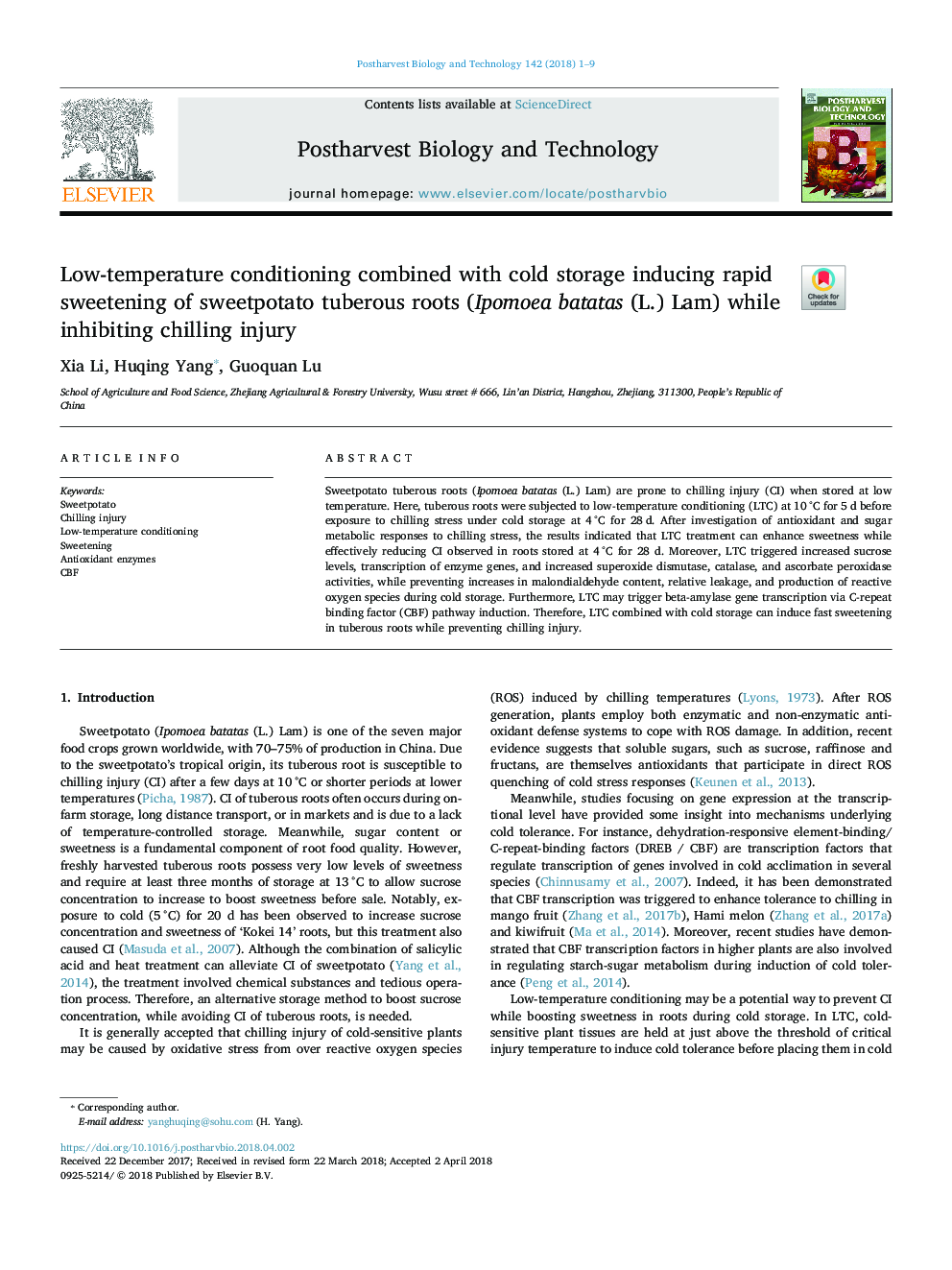| Article ID | Journal | Published Year | Pages | File Type |
|---|---|---|---|---|
| 8881868 | Postharvest Biology and Technology | 2018 | 9 Pages |
Abstract
Sweetpotato tuberous roots (Ipomoea batatas (L.) Lam) are prone to chilling injury (CI) when stored at low temperature. Here, tuberous roots were subjected to low-temperature conditioning (LTC) at 10â¯Â°C for 5â¯d before exposure to chilling stress under cold storage at 4â¯Â°C for 28â¯d. After investigation of antioxidant and sugar metabolic responses to chilling stress, the results indicated that LTC treatment can enhance sweetness while effectively reducing CI observed in roots stored at 4â¯Â°C for 28 d. Moreover, LTC triggered increased sucrose levels, transcription of enzyme genes, and increased superoxide dismutase, catalase, and ascorbate peroxidase activities, while preventing increases in malondialdehyde content, relative leakage, and production of reactive oxygen species during cold storage. Furthermore, LTC may trigger beta-amylase gene transcription via C-repeat binding factor (CBF) pathway induction. Therefore, LTC combined with cold storage can induce fast sweetening in tuberous roots while preventing chilling injury.
Related Topics
Life Sciences
Agricultural and Biological Sciences
Agronomy and Crop Science
Authors
Xia Li, Huqing Yang, Guoquan Lu,
